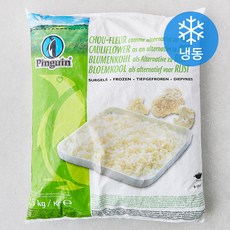콜리플라워라이스 가성비 끝판왕: 품질과 가격 모두 만족시키는 5가지 추천 (비교 분석 포함)
좋은 아침입니다, 여러분! 오늘 하루를 시작하는 첫 번째 소식으로 여러분께 흥미로운 제품을 소개하고자 해요.
콜리플라워라이스에 대한 상품 TOP5개 상품을 추천해드리려고 합니다.
👍 판매량이 많은, ⭐ 후기도 좋은, 💰 가성비도 좋은 콜리플라워라이스 상위 5개 제품 확인해보세요!
클릭하시면 콜리플라워라이스에 대한 더욱 자세한 제품 정보를 보실 수 있습니다.
📋 콜리플라워라이스에 대한 상품 5개를 선정해봤어요!.
🔍 제품의 특징을 확인하시고, 🛒 원하시는 제품을 선택해보세요!

콜리플라워라이스 인기 후기 Top5 1위
냉동 컬리플라워 라이스 500gX6팩 총 3kg/식단/조절/한팩을 다먹어도 110kcal, 6개
26,400원
23,900원
(9%)
⭐ 4.5점 | 💬 96개
로켓배송: 🚀가능🚀
🔍 제품의 특징을 알아보아요 🔍
✔️ **대용량:** 500g 6팩으로 총 3kg의 넉넉한 양으로 여러 번 사용 가능
✔️ **저칼로리:** 한 팩을 다 먹어도 110kcal 밖에 되지 않아 다이어트 식단에 적합
✔️ **다양한 활용:** 볶음밥, 샐러드, 스프 등 다양한 요리에 활용 가능

콜리플라워라이스 인기 후기 Top5 2위
유기농 컬리플라워라이스 600g 1+1, 2개
17,400원
16,400원
(5%)
⭐ 5.0점 | 💬 9개
로켓배송: 🚀가능🚀
🔍 제품의 특징을 알아보아요 🔍
✔️ **유기농 인증:** 믿을 수 있는 유기농 컬리플라워를 사용하여 안전하고 건강한 식품
✔️ **1+1 구성:** 600g 2개를 1+1으로 저렴하게 구매 가능
✔️ **넉넉한 양:** 1개당 600g으로 넉넉한 양 제공

콜리플라워라이스 인기 후기 Top5 3위
냉동 아이스 컬리플라워 라이스 1kg, 1개
17,000원
7,900원
(53%)
⭐ 5.0점 | 💬 8개
로켓배송: 🚀가능🚀
🔍 제품의 특징을 알아보아요 🔍
✔️ **냉동 보관:** 장기간 보관이 가능하여 필요할 때 바로 사용 가능
✔️ **1kg 대용량:** 넉넉한 1kg 용량으로 여러 명이 나눠 먹기에 충분
✔️ **빠른 조리:** 냉동 상태에서 간편하게 조리 가능

콜리플라워라이스 인기 후기 Top5 4위
그린야드 컬리플라워 다이스, 2.5kg, 1개
16,400원
14,900원
(9%)
⭐ 4.5점 | 💬 6개
로켓배송: 🚀가능🚀
🔍 제품의 특징을 알아보아요 🔍
✔️ **다이스 형태:** 볶음밥이나 스프 등에 바로 사용 가능한 다이스 형태
✔️ **대용량:** 2.5kg의 대용량으로 가성비가 뛰어남
✔️ **다양한 활용:** 볶음, 찜, 튀김 등 다양한 요리법에 활용 가능

콜리플라워라이스 인기 후기 Top5 5위
웰팜 컬리플라워 라이스 1kg, 1개
7,200원
6,800원
(5%)
⭐ 4.5점 | 💬 9개
로켓배송: 🚀가능🚀
🔍 제품의 특징을 알아보아요 🔍
✔️ **넉넉한 양:** 1kg으로 넉넉한 양 제공
✔️ **간편 조리:** 냉동 상태에서 간편하게 조리 가능
✔️ **다양한 요리:** 밥 대신 볶음밥, 샐러드 등 다양한 요리에 활용 가능
파트너스 활동을 통해 일정액의 수수료를 제공받을 수 있음을 알려드립니다.
📧 게시물 삭제 요청 📧
상표권&저작권에 문제가 되는 게시물 삭제에 관하여 메일로 문의를 보내주시면 감사하겠습니다.
💌 메일주소 💌
ghrms6320@naver.com

